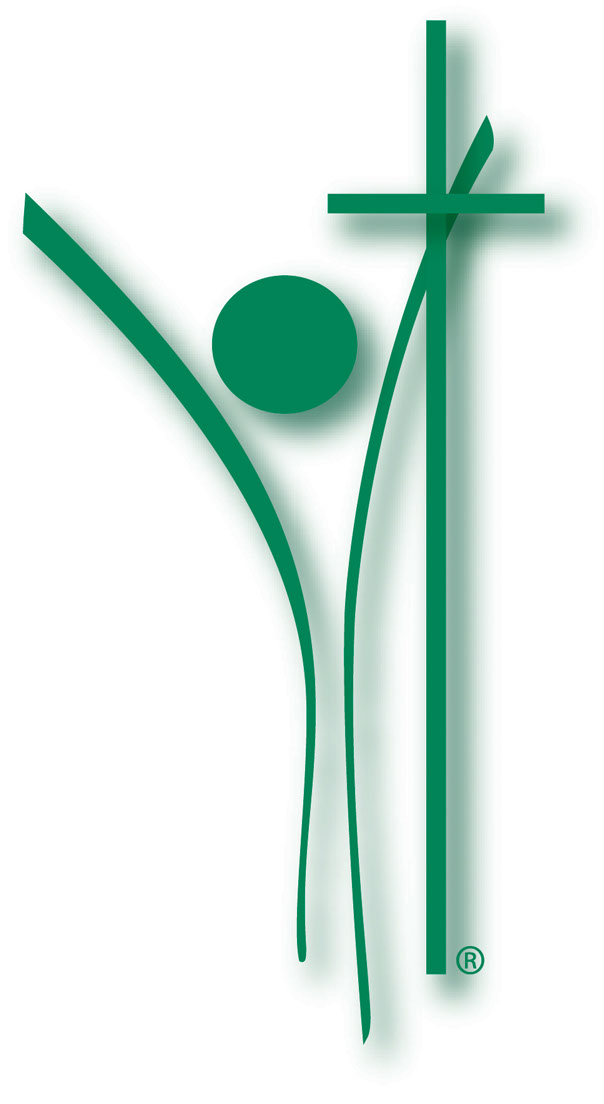
Our History
History of the Reformed Church
History of RCA Continued
What we Believe
On January 15, 1956, the first service of the Ebenezer Reformed Church was held in the Kennedy High School in Cooksville. There were 20 families present. The Rev. J. van Kuiken officiated. The first baby was baptized on January 29, 1956. The Women's Guild and Men's Club had their first meetings in February at the homes of some of their members. Catechism and Communion classes had already been held for two winters in the home of the van Tienderen's.
In the summer of 1956, we had a student minister, Mr. C. Igein. In the fall of 1956 a Choir and Young People's Club were started.
On November 21, 1956, the Ebenezer Reformed Church, with approximately 30 families, was officially organized. The following summer we had another student minister, Mr. Jan van Oostveen, who also looked after the Barrie congregation.
In January of 1958, we moved to the Erindale Community Hall. At the same time, we notified the head office of the RCA of our wish to have Mr. van Oostveen as the first full-time minister of the Ebenezer Reformed Church. The call was approved, and the installation took place in the Dixie Presbyterian Church on June 18, 1958. Under the leadership of the Reverend and Mrs. van Oostveen, the congregation grew steadily.
In July 1959, the property on Glengarry Road was purchased and plans to build the church took form. It was a glorious day for the congregation on February 24, 1960, when the church was dedicated. Reverend Kolenbrander from Orange City, Iowa, preached the dedication sermon.
Nobody could think that God would take, so soon afterward, a stone from our congregation, but it happened the next day. On their way home from visiting RCA churches in Ontario with Reverend and Mrs. Kolenbrander, the van Oostveen's had a car accident; Mrs. van Oostveen was killed instantly and Mrs. Kolenbrander died on the way to the hospital. It was a sorrowful congregation that came together for the Sunday morning service. On Monday, February 29, 1960, Mrs. van Oostveen was buried from our church and interred in the family plot in Ayr, near Galt. The work of the church went on and grew steadily.
In May 1962, Reverend van Oostveen received a call from the Calgary Reformed Church, which he accepted; he left in June.
Their research led to the purchase of a farm near Galt, later known as Camp Shalom.
That summer, J. Wielhouwer, a student, served the congregation. It was not until February 1963 that we again had our own minister, the Reverend J. Hoekstra, who was with us for two years, leaving to serve in the Dutch West Indies.
In the summer of 1964, land on Glengarry Road was purchased. The following summer, we had another student, Mr. B. B. Goodwin. In the fall of 1966, a call was extended to Reverend Johannes Schriel of the Campbellville Presbyterian Church. He became our third full-time minister on March 4, 1966.
Reverend Schriel and other ministers is the Classis researched the idea of a recreation area for all the Reformed churches in Ontario. From that research came the purchase of a farm near Galt, later known as Camp Shalom. In 1970, the Junior Young People had their first week at the camp.
In January 1971, Reverend Schriel left our congregation to serve the Reformed Church in Drayton, Ontario.
On February 1, 1972, the congregation called Mr. Richard Westra, a student at New Brunswick Theological Seminary in New Jersey, to become the next minister; he accepted the call on February 27 and joined us in June. On July 5, 1972, the Reverend R. Westra was installed as our fourth minister. Under his leadership, we started to work in the community around our church. We took part in Key '73 and in the Sheridan Mall ministry.
In the fall of 1979, our church offered a program from the "Dobson Evangelism" series in our neighbourhood. Many people attended our weekly meetings, some from as far away as Alderwood, near Etobicoke. We were happy to be doing something positive for our neighbourhood. In 1981, Reverend Westra accepted a call to Oman in the Middle East. He preached his farewell service on Easter Sunday, April 20, 1981.
Between November 1981 and March 1985, Reverend Guinta was our pastor.
Reverend Tom Welscott became our interim pastor for a year, after which we welcomed him as our full-time minister. We started a weekly program for neighbourhood children, which is still growing. Praise the Lord for the great leadership that was provided. In 1993, Reverend Welscott took a call to Central Lake, Michigan; he preached his farewell service on October 31, 1994.
.

History of the Reformed Church
The Reformed Church is like a tree…a tree with deep roots, and a trunk whose branches spread out in many directions. As a denomination, we are one of those branches. Our Roots Our spiritual roots go back to the very beginning, as explained in our holy book, the Bible. In the very first book of this Bible, we read the words: ”In the beginning, God…” When that beginning was, we do not know. Only God knows.
We share the very first 39 books of the Old Testament, with our brothers and sisters of the Jewish faith. However, they do not share with us the next 27 books of our Bible, which are called the New Testament. These 27 books give testimony as to who Jesus Christ is, why He came and how He calls us to be His followers.
Jesus Christ is called Lord of the Church. When the first Christian Churches were established, around 35 A.D, there was still a great deal of interaction between Christians and those belonging to the Jewish faith. Since the relationship between these two faith groups began to sour (because of our faith in Jesus Christ), the Christian Church began to branch out on its own. However, since we have so much in common with our Jewish brethren, many members of the Reformed Church still have a soft spot for the members of the Jewish community. This was evident during World War II, when many took significant risks to help them, when the latter were persecuted.
While it is debatable as to when the first Christian Church was established, it is very clear that the first Christians; were inspired on the day of Pentecost, which is when the Holy Spirit was poured out on both men and women believers. From that time on, Christians have been spreading the Good News that Christ was crucified and had risen again. The first two centuries of its existence were difficult for the followers of Christ. During that time they had to deal with both hardship and persecution. Many of them lost their lives, often in cruel way. Since the first Christians did not have written statements of what they believed, some were led astray by false teachings.
It was during this time of turmoil and confusion that major Creeds of the Church were written. These creeds, or statements of faith, were written, in order to spell out what Christians believe about God the Father, Christ His Son and the Holy Spirit. These three creeds are:
The Apostles’ Creed
The Nicene Creed, and
The Athanasian Creed.
In spite of all the hardships these Christians had to endure, the Church continued to prosper. It gained so much strength and influence that in the year 320 A.D, Christianity became the official religion of the Roman Empire. Soon after its dynamic start, groups of believers began to branch off into different directions. One of the first groups that branched off was the Coptic Church in Egypt. These believers have also spread across the globe. Some of these Coptic Christians practice their faith as nearby as here in Mississauga.
Many centuries later another group of believers branched off from the trunk, to continue to use the analogy of a tree. This branch became known as the Orthodox Church. These Orthodox believers have developed their own liturgy and have expressed their faith in a unique way. Our contact with this group of believers is through our common membership in the Canadian and World Council of Churches.
The Reformed Church, the next groups of believers, to which ERC belong, branched off from the Western Church, during the 16th Century. These Churches became known as the Churches of the Reformation. Up to that time, the majority of the Christians were called Roman Catholics or Orthodox. After the Reformation, these branched-off believers became known either as Anglicans, Lutherans, or as members of the Reformed Church. Some others became known as Radical Reformers, such as the Baptists and the Mennonites.
The Reformed Church worship throughout the world. How about making it "Your Church" a spiritual home.

As pointed out, the Reformed Church is a child of the Reformation. Furthermore, the great theologian, John Calvin, the Swiss theologian of the 16th Century, became its spiritual leader. It was this theologian who had a great deal of influence on the Christian movement in Europe. He made his mark by reaching out to both leaders of the nation and to the common people. His aim was to interpret the message of the Bible in such a way that the common people could understand it.
Gradually, the Reformed branch of the Reformation began to spread throughout Europe, especially to Hungary, Switzerland, Scotland and The Netherlands. When the Reformed Church in The Netherlands began to flourish, its leaders felt called to reach out to its members who had settled outside The Netherlands. So when the Dutch established a permanent settlement in Manhattan, New York, and other places along the Hudson River, Dutch pastors were sent to these settlements. From that time on, they began to establish churches among them. Consequently, in 1627, the first Reformed Church was established in the loft of a horse mill on the island of Manhattan, in the state of New York. By doing so, the Reformed Church became the first Protestant denomination in North America with a continuous history.
During the following centuries the Reformed Church in the United States began to move West, especially to California, Iowa and Michigan. It not only established Churches in the Western part of the United States, but also in Canada. However, when conflicts arose between these two nations, the congregations in Canada were deprived of financial support and encouragement, and then joined the Presbyterian Church.
After the Second World War, another wave of Dutch immigrants settled in Canada. Many of these immigrants already belonged to the Reformed faith. Then, with the cooperation of the Mother church in the United States, Reformed congregations were again established in this country, mainly in Ontario, Alberta and British Columbia. The words “in America” in our name point to our beginning in the United States.
That is where the first congregation was organized. Even though the Reformed Church in Canada has its own unique history, we are part of the Reformed Church in America. That is where our two seminaries are located and our three colleges (universities) are established.
Some characteristics.
We call ourselves “reformed”. We hold on to the name “Reformed”, for we believe that under the guidance and inspiration of the Holy Spirit we are open to being reformed. That means that we are open to change while at the same time we seek to hold on to the Truth that has been passed on to us through the generations.
We are ecumenically minded.
We not only believe that we have a great deal in common with all other Christians, we also believe that we have to express our unity with them in a concrete way. Therefore, we have joined many ecumenical organizations and have played a major role in them. Some of these church bodies are:
The World Council of Churches,
The Canadian Council of Churches,
The Evangelical Fellowship of Canada
and many others.
Through these organizations we keep contact with, and give support to Christians from around the globe.
The Reformed Church in America, has done pioneering work in China, in the Middle East and in Mexico. However, rather than establishing Reformed Churches in those countries, it has given its support to the indigenous Churches found there.
The Reformed Church has always welcomed believers from other cultures and nationalities. Consequently, we have some Chinese, Korean, Portuguese and Spanish speaking congregations in our midst.
The Basics
We believe that God created the world and everything in it, including human beings.
God created a perfect world. In the beginning, there was no sin--no hatred, no disunity, and no death. But God also allowed humans to make their own choices.
The first humans, Adam and Eve, disobeyed God, allowing sin to enter God's perfect world. From then on, every human has been born with sinful desires that lead to separation from God.
But the story doesn't end there. God loves the world and the people in it--so much, in fact, that he made a plan to take away the guilt of our sin.
God sent his son, Jesus, into the world as a human. Jesus gave his life to pay the price for sins he didn't commit. Jesus accepted the punishment for our sins so that we don't have to.
Three days after Jesus was killed, God brought Jesus to life again, defeating the power of death and evil. Jesus still lives today, eternally in heaven with God the Father. One day he will come back to earth to put an end to evil--sin, death, and pain--and renew all things. He will gather all who have believed in him from every time and place to live with him forever.
Our faith is centered in God's love for us demonstrated in Jesus Christ, his son.
When we accept Jesus' sacrifice for us and commit our lives to following him, God sees us as perfect, the way we were first created to be. We cannot manufacture such faith on our own; it is the result of God's Spirit working within us.
The Reformed View of Christian Faith
In the Reformed view, the final authority is the Bible--known as the Holy Scriptures, the Word of God.
The Reformed perspective is centered in the overwhelming love of God toward us. We believe that God is three in one--God the father, God the son (Jesus Christ), and God the Holy Spirit.
We believe that we are saved by grace alone through faith, not by what we think or do to earn God's favor. Our good works don't earn our salvation, but are a way to thank God for this free gift of salvation.
The Reformed Church in America celebrates two sacraments: baptism and the Lord's Supper. They remind us of God's promises to us and help us to claim those promises as our own.
The RCA is confessional, which means that together we have statements of belief, called creeds and confessions. These statements guide our understanding of faith and shape its practice.
The RCA is "Reformed and always reforming," earnestly seeking to know the mind of Christ as it strives to be faithful in a changing, complex, and often troubled world. The RCA's position papers on contemporary issues provide guidance to the members of the church and are a part of the church's witness in society.
Home /
© Copyright 2012 Ebenezer Reformed Church All rights reserved.
2438 Glengarry Road, Mississauga ON L5C 1Y2
Design by Doxa Marketing
New Here /
Events /
Serve /
Contact



